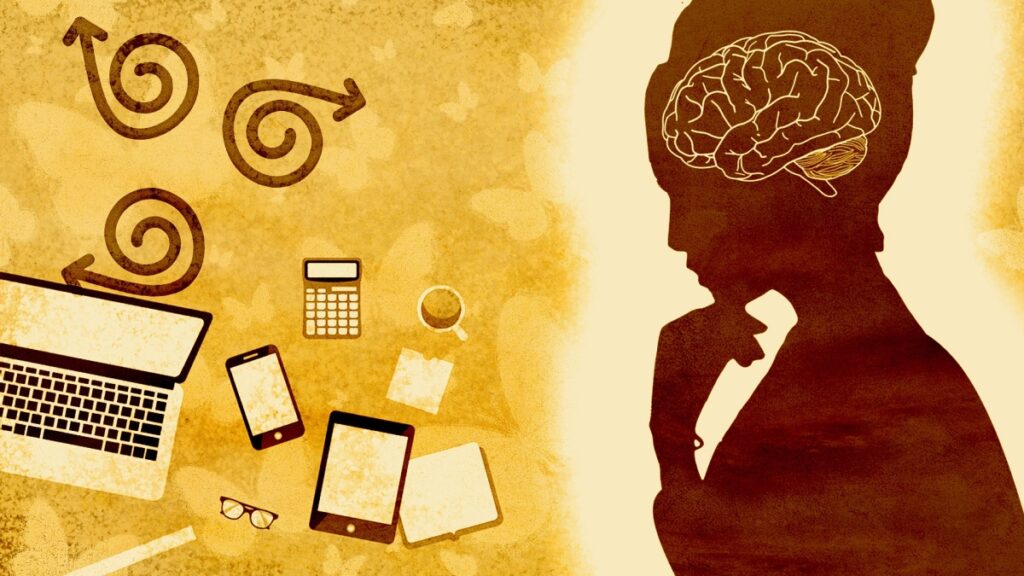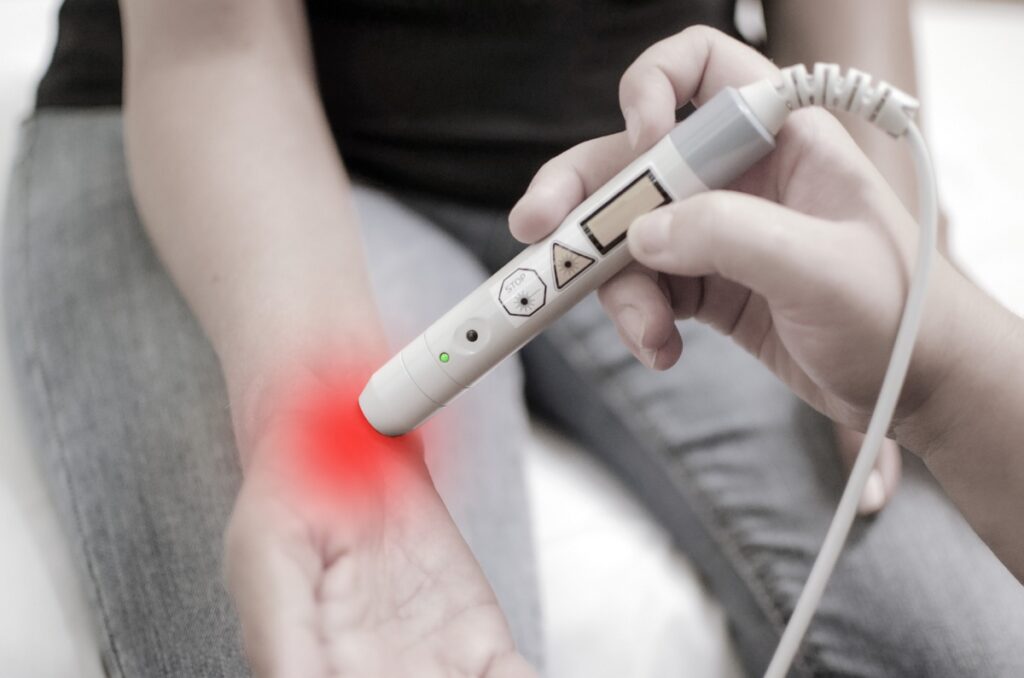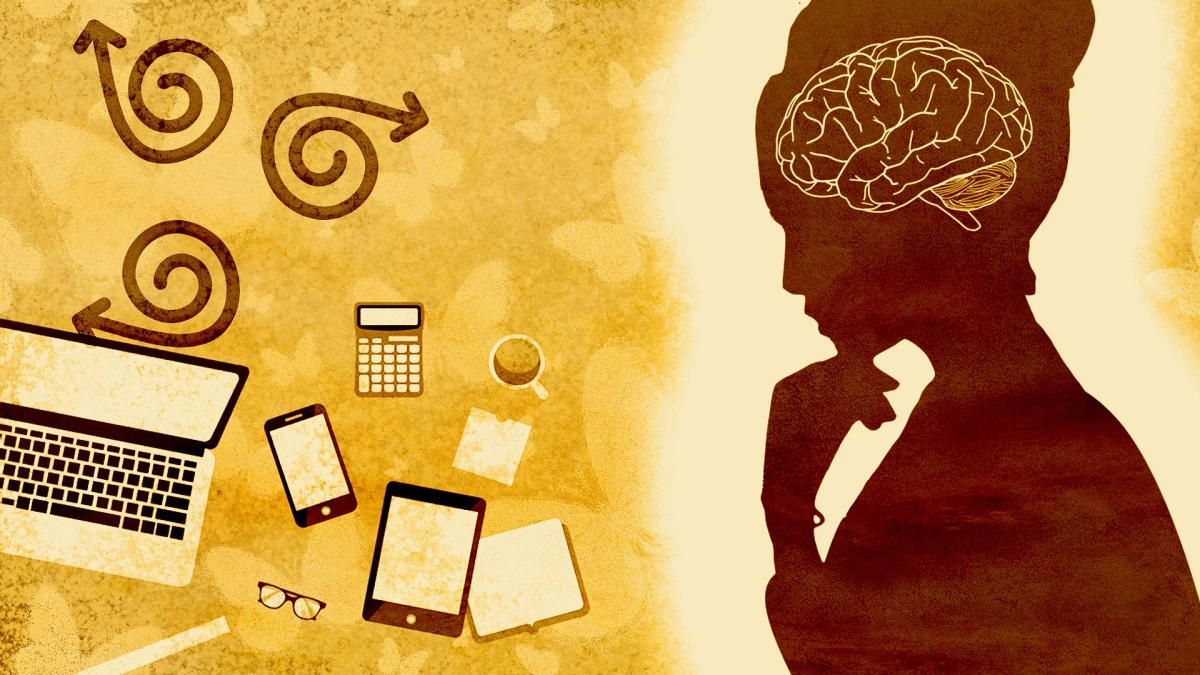Symptoms of acetylcholine deficiency: altering acetylcholine pathway
This article is part 2 of a 3-part series.
Part 1: What is acetylcholine and what are its important roles?
Part 2: 7 Signs you could have low brain acetylcholine levels
Part 3: How to boost your brain acetylcholine levels
Brain fog

Acetylcholine deficiency may cause problems with memory, learning, recall, focus, energy level, etc. Symptoms of brain fog or mental fatigue are classic acetylcholine deficiency symptoms, such as the inability to focus, poor concentration, lack of mental sharpness and clarity, learning and memory troubles, etc.
Some root causes of brain fog include chronic stress, a lack of sleep, and an unbalanced and unhealthy diet, all of which can reduce acetylcholine in the brain. In most cases, getting rid of brain fog requires addressing the root causes.
Inability to focus and ADHD
Low acetylcholine contributes to key symptoms of ADHD. The most common symptom of ADHD is the inability to focus on a single uninteresting task. Other symptoms may include:
- Forgetting to complete a task
- Being inclinable towards distraction
- Difficulties sitting still
- Interrupting other people while talking
Classic amphetamine medications that treat ADHD work partly by increasing brain acetylcholine. In addition, cholinergic drugs such as galantamine have helped with ADHD symptoms in children and adolescents.
Forgetfulness, memory problems, and Alzheimer’s disease

Poor cholinergic activity and low levels of acetylcholine in the brain are linked to cognitive decline and memory problems like dementia.
Acetylcholine plays a central role in the development of Alzheimer’s disease. The disease manifests itself as gradual destruction of cholinergic neurons—the neurons that use acetylcholine. Impairment of these neurons makes it more difficult for acetylcholine to transmit neuronal signals, thus affecting memory, recall, and learning.
Neuritic plaques composed of amyloid-beta protein are characteristic of the brain affected by Alzheimer’s disease. They are correlated to the cholinergic markers’ reduction. Moreover, cholinergic deficit is related to amyloid beta accumulation, which causes neuronal loss and impairment.
Most successful Alzheimer’s drugs inhibit acetylcholinesterase, an enzyme responsible for acetylcholine breakdown. The inhibition may increase acetylcholine levels.
Muscle fatigue
You need acetylcholine in your neuromuscular junctions to contract your muscles. During exercising, acetylcholine levels drop, which is why you get muscle fatigue. Whereas the recovery of both acetylcholine and acetylcholine neurons, which require acetylcholine breakdown, is important for exercise recovery.
Learning difficulty
Many neurological disorders and neurotransmitter imbalances can cause learning difficulties, such as dyslexia, dyscalculia (struggle with math), dysgraphia (struggle to write), and ADHD. It could be age-related, but can also be partly genetics, developmental, and environmental.
Given how important acetylcholine is, it makes sense that acetylcholine imbalance contributes to many learning difficulties. However, increasing acetylcholine alone may not be enough to cure these conditions.
Postural orthostatic hypotension and tachycardia syndrome (POTS)

Orthostatic or postural hypotension is abnormally low blood pressure when a person suddenly stands up too quickly after sitting or lying down. Symptoms include:
- Dizziness
- Lightheadedness
- Rapid increase in heart rate
- Fainting
- Weakness
- Confusion
- Nausea
In most cases, these symptoms could be due to dehydration or long rest and are not dangerous. However, in postural orthostatic tachycardia syndrome (POTS), the autonomic system cannot regulate blood pressure properly, causing you to feel these symptoms.
The cause of neurogenic orthostatic hypotension is a failure of noradrenergic neurotransmission associated with a range of other autonomic disorders. POTS patients often also have symptoms of acetylcholine dysfunction, such as reduced saliva function, slowed gut movement, nausea, constipation, and bladder dysfunction. An antibody that blocks acetylcholine function can also cause autonomic disorders that lead to POTS.
In a small clinical study involving 15 patients, acetylcholinesterase inhibition helped neurogenic orthostatic hypotension The drug (pyridostigmine) significantly increased blood pressure, reduced orthostatic heart rate, and improved the overall clinical image of the patients. Another clinical study of 17 patients confirmed this finding.
Chronic inflammation

Acetylcholine is a key neurotransmitter in the inflammatory reflex. The reflex is how your nervous system responds very quickly to inhibit acute inflammation and prevent the inflammation from causing too much damage.
In the inflammatory reflex, acetylcholine controls inflammation via the vagus nerve. The vagus nerve communicates between the brain and the immune cells. Together, these systems modulate inflammatory responses both through neuronal signals and the blood.
In the immune system, acetylcholine breakdown at the correct times and places reduces inflammation.
Therefore, acetylcholine dysregulations tend to go hand-in-hand with chronic inflammation.
Conclusion 2:
Low acetylcholine may correlate with brain fog, fatigue and mental inclarity, forgetfulness, etc. It may also manifest as chronic inflammation and muscle fatigue. Therefore, you want to learn to maintain healthy acetylcholine levels. In part 3 of this 3-part series, we will cover natural ways to increase acetylcholine levels.
References
- Ross AJ, Medow MS, Rowe PC, Stewart JM. What is brain fog? An evaluation of the symptom in postural tachycardia syndrome. Clin Auton Res. 2013;23(6):305-311. doi:10.1007/s10286-013-0212-z
- Micheau J, Marighetto A. Acetylcholine and memory: a long, complex and chaotic but still living relationship. Behav Brain Res. 2011;221(2):424-429. doi:10.1016/j.bbr.2010.11.052
- Hasselmo ME. The role of acetylcholine in learning and memory. Curr Opin Neurobiol. 2006;16(6):710-715. doi:10.1016/j.conb.2006.09.002
- Kolar D, Keller A, Golfinopoulos M, Cumyn L, Syer C, Hechtman L. Treatment of adults with attention-deficit/hyperactivity disorder. Neuropsychiatr Dis Treat. 2008;4(2):389-403. doi:10.2147/ndt.s6985
- Arnold HM, Fadel J, Sarter M, Bruno JP. Amphetamine-stimulated cortical acetylcholine release: role of the basal forebrain. Brain Res. 2001;894(1):74-87. doi:10.1016/s0006-8993(00)03328-x
- Lehmann C. ADHD symptoms respond to cholinergic drugs. Psychiatr News. 2003;38(22):25-25. doi:10.1176/pn.38.22.0025
- Roy R, Niccolini F, Pagano G, Politis M. Cholinergic imaging in dementia spectrum disorders. Eur J Nucl Med Mol Imaging. 2016;43(7):1376-1386. doi:10.1007/s00259-016-3349-x
- Pedersen WA, Kloczewiak MA, Blusztajn JK. Amyloid beta-protein reduces acetylcholine synthesis in a cell line derived from cholinergic neurons of the basal forebrain. Proc Natl Acad Sci U S A. 1996;93(15):8068-8071. doi:10.1073/pnas.93.15.8068
- Grimaldi M, Marino SD, Florenzano F, et al. β-Amyloid-acetylcholine molecular interaction: new role of cholinergic mediators in anti-Alzheimer therapy? Future Med Chem. 2016;8(11):1179-1189. doi:10.4155/fmc-2016-0006
- Cacabelos R. Donepezil in Alzheimer’s disease: From conventional trials to pharmacogenetics. Neuropsychiatr Dis Treat. 2007;3(3):303-333.
- Jiang S, Li Y, Zhang C, et al. M1 muscarinic acetylcholine receptor in Alzheimer’s disease. Neurosci Bull. 2014;30(2):295-307. doi:10.1007/s12264-013-1406-z
- Geula C, Nagykery N, Nicholas A, Wu C-K. Cholinergic neuronal and axonal abnormalities are present early in aging and in Alzheimer disease. J Neuropathol Exp Neurol. 2008;67(4):309-318. doi:10.1097/NEN.0b013e31816a1df3
- Conlay LA, Sabounjian LA, Wurtman RJ. Exercise and neuromodulators: choline and acetylcholine in marathon runners. Int J Sports Med. 1992;13 Suppl 1(S 1):S141-2. doi:10.1055/s-2007-1024619
- Blokland A. Acetylcholine: a neurotransmitter for learning and memory? Brain Res Brain Res Rev. 1995;21(3):285-300. doi:10.1016/0165-0173(95)00016-x
- Kossowski B, Chyl K, Kacprzak A, Bogorodzki P, Jednoróg K. Dyslexia and age related effects in the neurometabolites concentration in the visual and temporo-parietal cortex. Sci Rep. 2019;9(1):5096. doi:10.1038/s41598-019-41473-x
- McNamara P, Albert ML. Neuropharmacology of verbal perseveration. Semin Speech Lang. 2004;25(4):309-321. doi:10.1055/s-2004-837244
- Metzler M, Duerr S, Granata R, Krismer F, Robertson D, Wenning GK. Neurogenic orthostatic hypotension: pathophysiology, evaluation, and management. J Neurol. 2013;260(9):2212-2219. doi:10.1007/s00415-012-6736-7
- Wells R, Spurrier AJ, Linz D, et al. Postural tachycardia syndrome: current perspectives. Vasc Health Risk Manag. 2018;14:1-11. doi:10.2147/VHRM.S127393
- Li J, Zhang Q, Liao Y, Zhang C, Hao H, Du J. The value of acetylcholine receptor antibody in children with postural tachycardia syndrome. Pediatr Cardiol. 2015;36(1):165-170. doi:10.1007/s00246-014-0981-8
- Singer W, Opfer-Gehrking TL, McPhee BR, Hilz MJ, Bharucha AE, Low PA. Acetylcholinesterase inhibition: a novel approach in the treatment of neurogenic orthostatic hypotension. J Neurol Neurosurg Psychiatry. 2003;74(9):1294-1298. doi:10.1136/jnnp.74.9.1294
- Raj SR, Black BK, Biaggioni I, Harris PA, Robertson D. Acetylcholinesterase inhibition improves tachycardia in postural tachycardia syndrome. Circulation. 2005;111(21):2734-2740. doi:10.1161/CIRCULATIONAHA.104.497594
- Rosas-Ballina M, Tracey KJ. Cholinergic control of inflammation. J Intern Med. 2009;265(6):663-679. doi:10.1111/j.1365-2796.2009.02098.x
